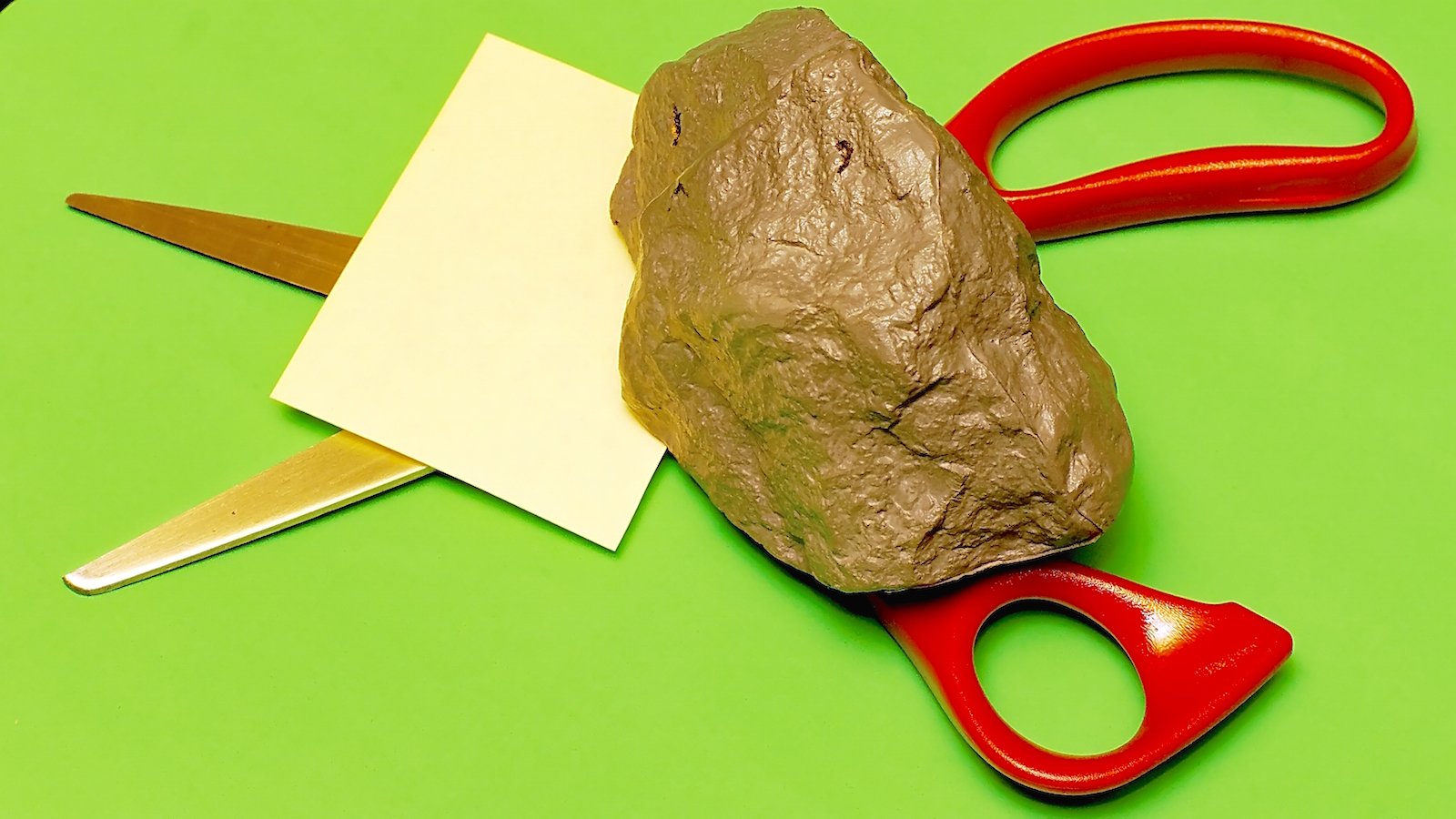Who doesn't love a good game of rock-paper-scissors?
Whether just playing for fun, or using the game to win some kind of bet, it might seem like there is no real way to predict the winner and loser of the game. After all, with rock, paper, and scissors being chosen by each person at random, how could anyone possibly have a strategy to win?
Well, as it turns out, scientists think they may have finally cracked the rock-paper-scissors code.
A recent study published in Scientific Reports not only shows that people tend to play one of the three items more often than the others, but it suggests that you might be able to predict what the other person is going to do next.
Scroll through below to see just what this amazing study found, and how you could form a strategy to potentially dominate your next round of rock-paper-scissors.
Will you be giving this theory a try? Did you win more using this strategy? Let us know in the comments!
[H/T: Daily Mail]

A study of people playing rock-paper-scissors was published in the journal Scientific Reports, and revealed some very surprising results.
The study's findings suggested three important takeaways that will help you to form a stronger strategy.
So what did the study reveal?

1. People Love Rock.
The first — and potentially most helpful piece of information — is that people tend to choose "rock" more often than "paper" or "scissors."
The study showed that participants were 3 percent to 4 percent more likely to choose "rock." And while this may not seem like a lot, in a game where things are seemingly random, a few percentage points can make a large difference.
So all things being equal, it seems that you should throw out "paper" since the likelihood of "rock" from your opponent is the highest.
However, be careful not to overplay "paper" as a response. Your opponent will quickly pick up on this and begin to play "scissors" instead.

2. Those Who Win, Stay. Those Who Lose, Shift.
The journal also published findings that when people are playing a fast-paced game of rock-paper-scissors, they tend to throw strategy out the window rather quickly. Instead, they react impulsively or emotionally.
This leads people to stick with an item when they win a round, and switch up the item when they lose it. So how can you use this information to predict what your opponent will do?
If you put out "paper" and lose to your opponent's "scissors," you can predict that they will likely put out "scissors" again, meaning you should play "rock" next.
However, if you put out "paper" and beat your opponent's "rock," you can predict that they will likely switch it up, meaning that you should switch it up as well.

3. Equality Is A Winning Strategy.
The experts behind the report suggest that the only way to beat a truly unpredictable opponent, like a computer for example, is to play each of the items absolutely equally.
By avoiding a specific strategy based on emotions or what your opponent is doing, you eliminate as much room for error or risk of falling into a predictable pattern as possible.
They suggest that you use a "mixed-strategy equilibrium." Play each of the items just as much as any other. For every nine rounds, for example, you should play "rock" three times, "paper" three times, and "scissors" three times.
This eliminates all possibility of your computer — or highly intelligent — opponent figuring out a strategy to beat you.

While rock-paper-scissors is only a game, knowing these effective tips and having a discernible strategy can make the difference in coming out on top or not!
Will you be trying out these tips? Did it make any difference in your success rate? Let us know in the comments.
Watch the video below for a look at the rock-paper-scissors that absolutely cannot lose.
Then, please SHARE these incredible tips with any game lovers in your life!




